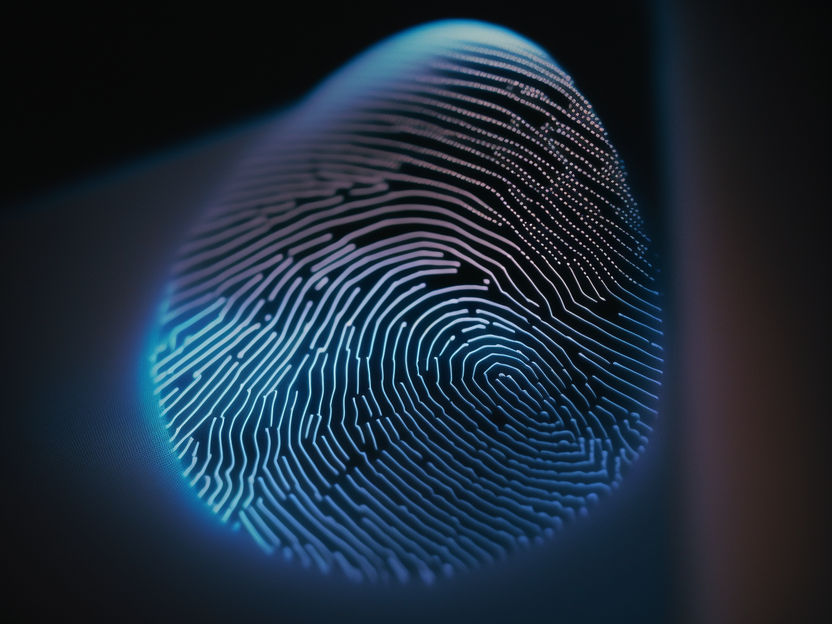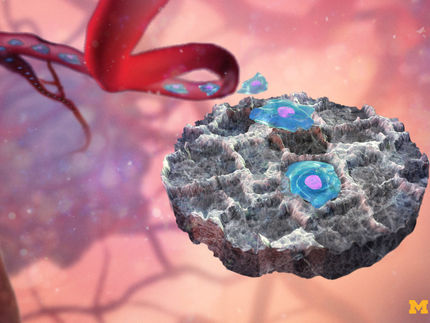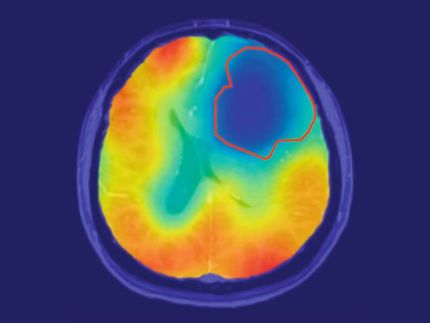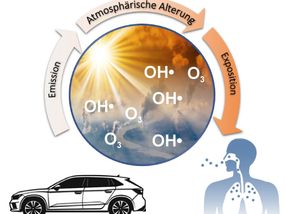Fingerprint breakthrough in breast cancer detection
Scientists has successfully developed a pioneering non-invasive method for detecting breast cancer from fingerprints, with 98% accuracy
The researchers found that technology called Matrix Assisted Laser Desorption Ionisation mass spectrometry (MALDI MS) can be applied to enhanced fingerprints for the detection of breast cancer. The technology is normally used to map drugs, pharmaceuticals and biological molecules within tissue sections.

Symbolic image
Computer-generated image
A cohort of women with benign, early or metastatic breast cancer was recruited from Doncaster Royal Infirmary’s Jasmine Breast Unit, with fingertip smears taken from each patient either at diagnosis or during active treatment. Subsequent machine learning was applied, predicting the correct category of cancer with 97.8% accuracy.
Breast cancer annually affects 2.3 million people across the world and causes more than 600,000 deaths. It is the most common cancer in British women. NHS figures have revealed that 1.2 million women — 37 per cent of those invited — did not turn up for breast cancer screening in England last year. The latest developments have potential to increase uptake in breast cancer screenings and help reduce NHS backlog.
Traditional methods of screening and detection, such as mammography and biopsy, are effective but can expose individuals to radiation, have limitations to specificity and can cause discomfort.
Some patients also find existing screening painful or culturally unacceptable, with mammograms requiring a patient to expose their breasts.
The research team is led by Sheffield Hallam’s Professor Simona Francese and includes Lynda Wyld, Professor of Surgical Oncology at the University of Sheffield and consultant oncoplastic surgeon at Doncaster Royal Infirmary, Dr Cristina Russo from Middlesex University, Dr Charles Bury from Medicines Discovery Catapult, Dr Cameron Heaton from Foster+Freeman, and Dr Laura Cole and Dr Marjory Da Costa-Abreu from Sheffield Hallam University.
Professor Francese said: “This proof-of-concept study is at the interface of forensic science and clinical diagnostics and shows that fingerprints are valuable not only to obtain intelligence to profile criminal offenders but also to diagnose pathologies. At a time where the NHS is understaffed and with considerable backlogs, a painless, quick and non-invasive method to screen for breast cancer collecting the sample in the comfort of the home is highly desirable.
“These are exciting findings and, given the potential impact, we must pursue validation for a future rollout. It would be reckless not to fund this follow-up work.”
Professor Wyld said: “This novel technique is still at an early stage in its development but the results are very promising. We plan to undertake some more research to confirm these findings on a large group of women but if the findings are confirmed the technique holds great potential both for the screening and diagnosis of breast cancer but also for monitoring how well treatments such as chemotherapy are working. This would potentially save women having regular CT body scans every few months. The fact that the technique only requires a finger tip smears, which are easy to transport and perform, may also make breast screening and diagnosis more accessible.”
It is the latest development from Sheffield Hallam University’s Centre for Mass Spectrometry Imaging, Biomolecular Sciences Research Centre, which, amongst other, is carrying out ongoing research into how fingerprint technology can provide crime investigators with additional biometric information about a criminal's activities prior to committing a crime.
Original publication
See the theme worlds for related content
Topic World Mass Spectrometry
Mass spectrometry enables us to detect and identify molecules and reveal their structure. Whether in chemistry, biochemistry or forensics - mass spectrometry opens up unexpected insights into the composition of our world. Immerse yourself in the fascinating world of mass spectrometry!

Topic World Mass Spectrometry
Mass spectrometry enables us to detect and identify molecules and reveal their structure. Whether in chemistry, biochemistry or forensics - mass spectrometry opens up unexpected insights into the composition of our world. Immerse yourself in the fascinating world of mass spectrometry!


























































